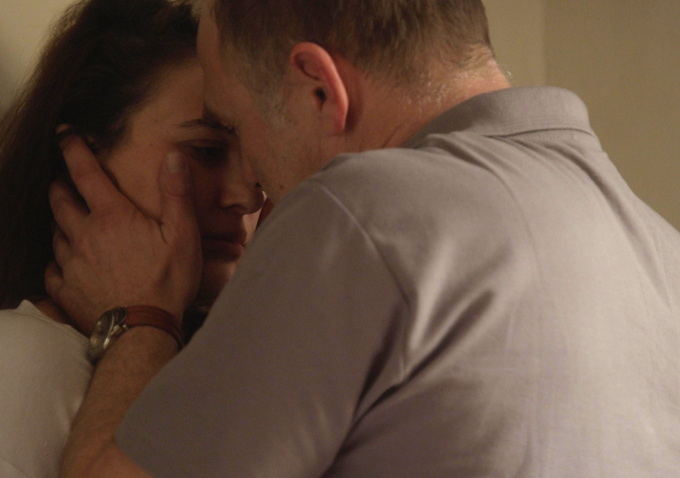 Sometime after seeing “Grace Of Monaco” (review here) yesterday, I said as an aside to a colleague, “Well, at least it can only get better from here.” Because normally, if a film like that, badly made and ill-conceived on every level, kicks off a festival, the worst is over, and while you might get a few duff movies in the days to come, a low bar of clearance has already been set. How little I knew. Barely 24 hours later, saying as much felt like tempting fate, because while “That Lovely Girl” is certainly more technically accomplished than ‘Grace,’ it’s infinitely more loathsome.
Sometime after seeing “Grace Of Monaco” (review here) yesterday, I said as an aside to a colleague, “Well, at least it can only get better from here.” Because normally, if a film like that, badly made and ill-conceived on every level, kicks off a festival, the worst is over, and while you might get a few duff movies in the days to come, a low bar of clearance has already been set. How little I knew. Barely 24 hours later, saying as much felt like tempting fate, because while “That Lovely Girl” is certainly more technically accomplished than ‘Grace,’ it’s infinitely more loathsome.
Coming from Camera d’Or-winning Israeli filmmaker Keren Yedaya (who took home the trophy in 2004 for “Or“), the film details the relationship between fifty something Moshe (Grad Tzahi) and twentysomething Tami (Maayan Turgeman). The two live together in a poky flat in Tel Aviv, the latter barely leaving while her partner is away at work, and their lives seem to consist mostly of eating together and having sex. Oh, and as it’s revealed almost immediately, Moshe and Tami are father and daughter.
It’s unclear when the relationship began (in fact, we learn little about the characters beyond what we actually see unfolding on screen), but it seems a safe assumption to guess it was during Tami’s childhood, because she’s stuck in development, infantilized and totally reliant on her father-husband. And it’s a miserable relationship, Moshe tender one moment, then physically abusive or flaunting his new girlfriend in front of Tami, and having seemingly gained weight, she’s developing both bulimia and a self harming problem.
Does this sound unbelievably, unrelentingly grim? Try sitting through the fucking thing. Claustrophobic and essentially a two-hander, it’s not so much a movie as a series of increasingly traumatizing, bleak indignities inflicted on Tami, from emotional bullying to beatings, from rape to, uh, gang-rape. There’s eventually a glimmer of hope towards the very end, but even that is leavened with an abortion. Even Lars von Trier would probably shift uneasily in his seat and find it a bit much.
This isn’t to say that there isn’t a place for miserabilism in cinema. Indeed, Greek drama “Miss Violence” (review here), which dealt with similar themes, was one of the highlights of the Venice Film Festival last year, but that was told with some real storytelling chops, and actually sought to investigate and engage with this kind of abusive relationship, rather than just pile on a series of indignities on to its protagonist. A protagonist, incidentally, who never develops beyond being a victim, just as Moshe is a monster from the off, and never develops a texture beyond that. Instead of showing the horrors of incest and child abuse, the approach actually dismisses them.
Even if Yedaya was trying to go for a sort of experiential ground-eye-view of what it’s like to be this kind of victim, as one suspects she might have been, it doesn’t work. The film has a perspective problem, mostly sticking with Tami, but drifting from her when it feels like it. For instance, her gang rape is shown not from her perspective, but from that of the boys watching from behind a barrier of deckchairs, presumably because the director thought it would make for an attention-grabbing shot. It’s just another way that the film exploits, rather than protects, its central character, and the actress who plays her.
The central performances are, at least, committed and brave, though you feel for the actors more than you admire them. But aside from that, it’s hard to see what Yedaya intended from the film. Of course this kind of relationship exists in the world, but it’s not enough just to show that it does: you have to engage at some level, rather than just depicting it. Otherwise, it becomes like making a movie about a serial killer that shows absolutely nothing except the murders. [F]


